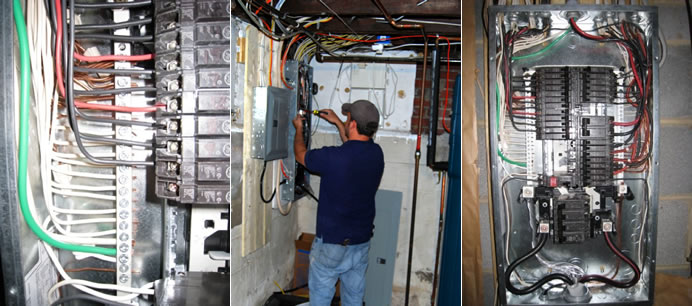Homeowners often need to make decisions that can greatly impact the living experience and overall design of their homes. One of the most commonly-debated issues is whether or not homeowners should upgrade their electrical system. Whether or not you should upgrade your home electrical system will depend on several factors, including the following.
1. The Age of Your Home
If your home was built in an era when electrical systems were more rudimentary, you might have concerns about safety or energy efficiency. In such a case, you may consider upgrading your electrical system.
2. The Electrical Demands of Your Household
Electrical systems need to be designed with the electrical demands of your household in mind. Let's say you have recently bought a new energy-hungry appliance. You should find out if the existing system in your home is up to the task. If not, you should certainly consider upgrading it.
3. Concerns With the Current System
Like any other system, your electrical system may suffer from wear. If you notice any problems, you should upgrade it as soon as possible. These problems can include power fluctuations, frequent tripping of circuit breakers, and a high load proportionate to the demand.
4. Property Value
A modern electrical system can improve the value of your property considerably. For that reason, you should consider upgrading your electrical system if you intend to sell your home soon.
5. Cost
Upgrading your electrical system can be very expensive. As a result, you may need to weigh the cost of the intended upgrade against the benefits.
If you decide to upgrade your electrical system, you will want to do so in a way that will maximize energy efficiency and safety. The following tips will help lower the cost of your electrical upgrade.
1. Get a Smart Electrical Panel
Most of the homes we have today were built in the 1980s. During this time, fewer electrical devices were in use at many homes, and a 100-amp panel was quite capable of getting the job done. Nowadays, the electrical demands of the average household are much greater, and a 100-amp panel may not be enough. You should consider upgrading your electrical panel to a 200-amp panel to meet these demands. The drawback here is that a 200-amp panel is costly and time-consuming to install. A viable alternative would be a smart electrical panel. This system can regulate your home's energy use to avoid spikes in demand. This will help to lower your bills.
2. Invest in Low-Voltage Appliances
You can substantially lower your electrical bill by investing in low-voltage appliances. Energy-efficient light bulbs are a good example of this. Some of these bulbs use as little as 10 watts, which is much less than the 60 watts that some standard bulbs use.
3. Bypass the Electric Panel Entirely
A smart electrical panel is, without a doubt, the best option to help lower your electricity bills. However, not all people can afford it. If you realize that your panel has become inefficient and you don't have the option of a smart panel, you can bypass the electric panel entirely. In such a case, you can go directly to the breaker box.
4. Consult a Professional
You should get a professional to help you with your electricial upgrade for several reasons. First, if you are unfamiliar with the intricacies of an electrical system, there may be something that you overlook. Second, a professional can help identify issues that may arise as a result of the upgrade. They will also be able to advise you on how to mitigate these issues. In addition, they can help you decide on the best option for your household.

